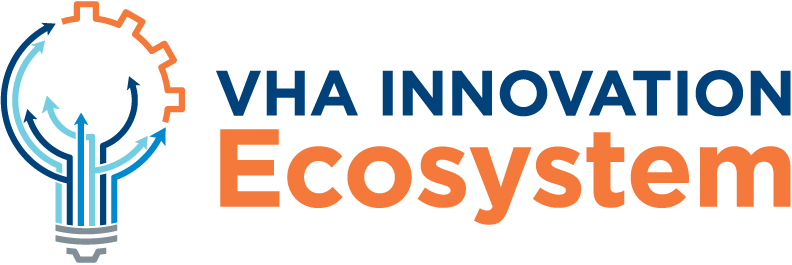The Veterans Health Administration’s Innovation Ecosystem (VHA IE) is the catalyst for enabling the discovery and spread of mission-driven health care innovation to advance care delivery and service that is changing and saving Veteran lives.
The IE includes many innovations and programs that focus on women Veterans, specifically their health and well-being.
Overall, IE has impacted over 1 million Veterans; over 25,000 employees have been involved with innovation competency training and implementation; and over 150 facilities have been involved in identifying and scaling innovation.
The following are some of the programs of interest to women Veterans:
- HER space – Healing, empowerment and resilience retreat for women: Chalmers P. Wylie Ambulatory Care Center in Whitehall, Ohio, has recognized that Military Sexual Trauma (MST) increases risk for multiple adverse health outcomes, yet nearly 50% of women Veterans with MST do not receive care through VHA. This project involved a two-day, offsite, therapeutic retreat for women Veterans with a history of MST who are unengaged or under-engaged in VA services.
- PRIDE in All Who Served: It’s estimated that there are more than 1 million LGBTQ+ Veterans. LGBTQ+ Veterans are at an increased risk for health care disparities, especially suicide, due in part to discrimination and difficulty accessing health care. With the support of the VHA IE, Dr. Tiffany Lange, clinical psychologist at Hampton VA, developed the PRIDE Program, which has grown to 34 VA facilities. The program previously received support from VHA Innovation Ecosystem’s Innovators Network and is currently a designated Diffusion of Excellence National Diffusion Practice. PRIDE is a 10-week health education program focused on reducing health care disparities among LGBTQ+ Veterans. The program focuses on overall wellness, increasing social connectedness, and empowering LGBTQ+ Veterans to engage in VHA services relevant to their personal health care needs.
- START Now: Women Veterans have higher-than-average rates of Post-Traumatic Stress Disorder (PTSD), homelessness, poor mental and/or physical health, suicidal ideation/attempts and substance use disorders. Strength, trauma, anxiety, rehabilitation, treatment (START) Now is a strength-based program designed by Lebanon VA Medical Center in Pennsylvania to build resilience, confidence and overall well-being in women Veterans.
- TeleLactation Program: The TeleLactation Program uses telehealth services via clinical video telehealth and VA video connect for educating, assessing and supporting pregnant and lactating Veterans. The project started at VA Sierra Nevada Healthcare System and Memphis VA Medical Center.
- Through Our Eyes, The Women Veteran’s Experience Roadshow: VA Sierra Nevada Health Care System is dedicated to promoting a positive culture for women Veterans both in the VA facilities and the community at large. This portrait exhibit features images and its My Life, My Story biographies, which increases the cultural awareness of the women Veteran experience.
- Veterans Reproductive Health Engagement Program (VetRHEP): Disparities in reproductive health care services exist for women Veterans, especially those who live in a rural area or access care in a VA community clinic. Reproductive Care Coordination Model, developed by VA Salt Lake City Health Care System, uses an innovative approach to care provision, including virtual, direct-to-Veteran screening and care coordination.
Women’s health also will be a focus at the Innovation Experience (iEX) annual conference in the fall, which offers health care professionals from VA, other government agencies, industry, and academia the opportunity to celebrate, collaborate and promote a culture of innovation.
Allison Amrhein, MPH, is the director of operations for the VHA Innovators Network.
Topics in this story
More Stories
The Medical Foster Home program offers Veterans an alternative to nursing homes.
Watch the Under Secretary for Health and a panel of experts discuss VA Health Connect tele-emergency care.
The 2024 National Veteran Suicide Prevention Annual Report provides the foundation for VA’s suicide prevention programs and initiatives.






